Since 2009, IIM Indore has been encouraging its entire cohort of first year MBA students to spend a week in a rural area in groups of 6 to 10 students in order to understand the lived reality of the rural Indians. Since 2019, this has taken an even more concrete shape with the students engaging with the villagers in understanding the specific impact of 1-2 schemes on their lives. The schemes are identified in consultation with the government; the findings are documented and suggestions proffered. SDGs dealing with elimination of poverty, ensuring good health and well-being, emphasizing clean water and sanitation, advocating sustainable urbanization and promoting partnerships with NGOs and governments (SDGs 1, 3, 6, 11 & 17 respectively) have all been a part of this programme.

3rd PLACE
SDG Initiative of the Year Award
Rural Engagement Programme
3rd PLACE SDG Initiative of the Year Award
Indian Institute of Management Indore Website: https://www.iimidr.ac.in Indore , Madhya Pradesh,India - India
"Cultivating Change: Sowing Seeds of Progress in Rural India"
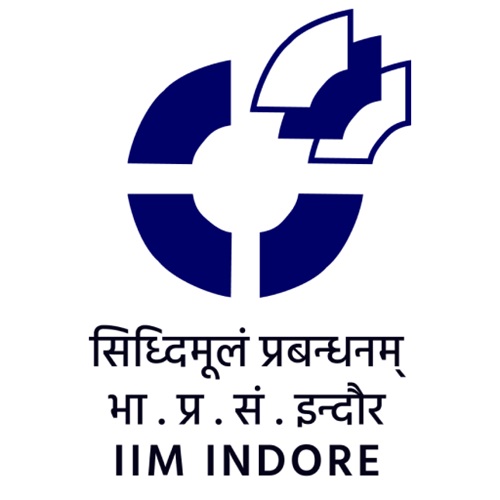
Summary
Key People

Prof. Srinivas Gunta
Professor and REP Coordinator
Strategy Area,
Indian Institute Of Management–Indore (IIM–Indore)
Acknowledgements
Ministry of Panchayati Raj & Rural Development, Government of Madhya Pradesh, India.
Images
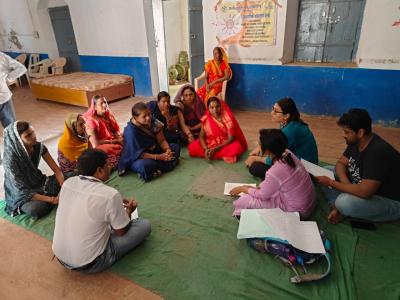
Attending a Meeting with Village Women to Learn About Women Empowerment
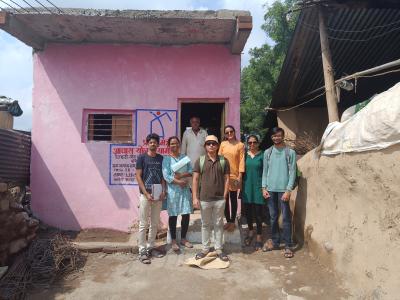
Collecting Survey Responses from Beneficiaries of the Prime Minister's Housing Scheme
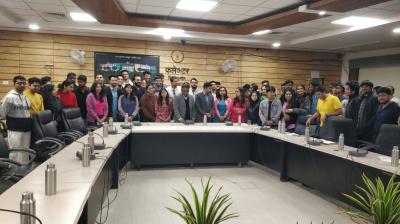
Meeting with the CEO of the Jila Panchayat
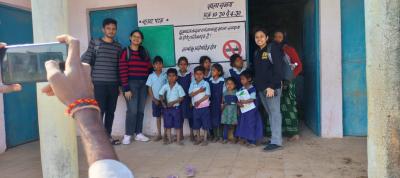
Collecting Survey Responses from Village Schools
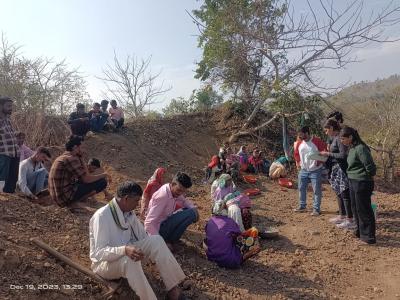
Discussion with Villagers About Their Employment and Its Benefits
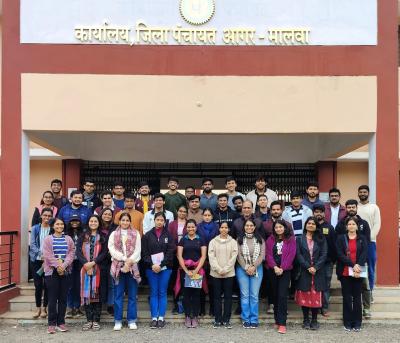
Group Photo of Students Visiting the Village for REP

Meeting with Village Administration Officer to Learn About Village Administration
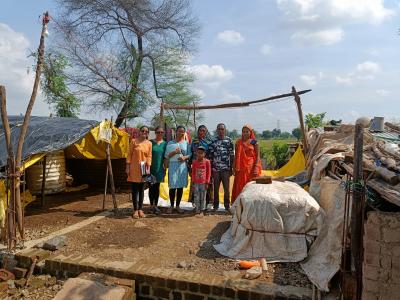
Filling Out Survey Responses for the Livelihood Project in the Village
IMPACT STORY
Impacting lifes
40% of GDP of the Madhya Pradesh state is derived from agriculture (as opposed to 18% in the whole of India) and is majorly dependent on rainfall. In this context, the central government's strategy of constructing "Catch the Rain" structures takes an added urgency. As a part of the REP this year, the students studied the impact of these structures in increasing income (by 50% in many cases) and reduced hardships (easier availability of water for irrigation and household use). There were several intangible benefits as well, such as improvement in biodiversity due to year-long availability of water and beautification of the places. The students were able to identify scope for improvement in the process through their interaction with multiple stakeholders and their lived experience.
The Rural Engagement Programme (REP) at IIM Indore bridges the gap between urban academia and rural realities by immersing students in hands-on rural experiences. In a six-week project in Pipliya Rao, Madhya Pradesh, students assessed agricultural practices, conducted financial literacy workshops, promoted health and hygiene, and supported local education. Key outcomes included a 30% increase in crop yield through improved irrigation, the opening of over 100 new bank accounts, early detection and treatment of health issues, and a 15% rise in student pass rates. Farmer Ramesh Patel praised the programme for enhancing farming techniques and financial management. The REP has proven to be a catalyst for sustainable development and transformative change in rural communities.
"This is one of the impactful stories from our REP program. Our REP programme main objective is to create a positive change in every aspect of rural life in India."
LEARNINGS
Lessons learned
While we do know that walking in someone else's shoes isn't as much about the walk as about the feelings, it is usually difficult to create that impact in an MBA programme despite case pedagogy and simulations. REP does that adroitly - the lived reality helps put things in a far better perspective. The students understand the responsibilities required in building a rural livelihood. It also helps students to understand the challenges in implementation of government policies, much better than a case study would. Finally, it helps them to observe leadership taking root from the ground-up.
The IIM Indore Rural Engagement Programme (REP) Report provides valuable insights and leadership advice based on program learnings. Key points include the importance of community engagement and empathy, which foster a deeper understanding of social issues essential for responsible leadership. Participants develop adaptability and creative problem-solving skills, enhancing their flexibility and resilience. The program emphasizes collaborative leadership, promoting teamwork and inclusive leadership by appreciating diverse perspectives. Sustainable development practices are encouraged, urging leaders to consider the long-term impact of their decisions on the environment and society. Ethical leadership is highlighted, with an emphasis on integrity and socially responsible decision-making. These learnings contribute to the development of well-rounded, socially conscious leaders capable of making a positive impact in their communities and beyond.
IIM Indore Rural Engagement Programme include community projects where students tackled water scarcity, sanitation, and education in rural areas, applying classroom knowledge to real-world problems and learning practical problem-solving and sustainable practices. Workshops on financial and digital literacy and health awareness provided leadership experience in planning and executing initiatives. The programme aligned with the United Nations Sustainable Development Goals (SDGs) like clean water, sanitation, and quality education, emphasizing global perspectives in local leadership. Regular feedback sessions and reflective practices helped students critically analyze their experiences, fostering continuous learning and leadership development.
FUTURE PLANS
What's coming?
The following points outline several future plans for the Rural Engagement Programme (REP) at IIM Indore:
Expansion of Outreach and Impact: Engage more rural communities, expand initiatives, and address diverse rural issues.
Collaboration with Stakeholders: Strengthen partnerships with government agencies, NGOs, and corporate entities to bring in more resources and expertise.
Enhanced Student Participation: Increase student involvement and ensure meaningful, impactful projects in rural communities.
Use of Technology: Leverage digital tools for data collection, project monitoring, and communication.
Capacity Building and Training: Focus on workshops and training for students and rural communities to equip them with essential skills and knowledge.
Sustainable Development Goals (SDGs): Align activities with the UN SDGs to contribute to global objectives like poverty reduction and quality education.
Monitoring and Evaluation: Establish a robust framework to assess impact, track progress, and address challenges.
International Student Engagement: Extend the program to exchange students from foreign universities to give them a varied experience of rural India and leverage their expertise for better village development plans.
These plans aim to enhance the REP's impact through increased outreach, collaboration, student involvement, technology use, capacity building, alignment with global goals, and rigorous monitoring and evaluation.

